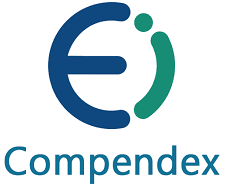Managerial Ability and Enterprise Leverage Ratio: A Case Study of Chinese Companies
Abstract
The present study aims at investigating the nonlinear impact of managerial capabilities on corporate leverage. To achieve this goal, the panel data of China’s A-share listed companies from 2012 to 2019, as well as the dynamic panel threshold regression were utilized. The findings of the study revealed that the managerial ability had an inverted "∩"-shaped threshold effect on the corporate leverage ratio. In other words, a negative correlation was observed when the managerial ability exceeds a certain level. Similarly, an inverted "∩"-shaped threshold effect was observed between the managerial capabilities and corporate leverage ratio in both private and state-owned large enterprises. Furthermore, a positive relationship was also found between managerial capabilities and corporate leverage in small and medium-sized and private enterprises. The influence of managerial ability in promoting corporate leverage was also found to be more obvious under medium power than high power conditions. The findings of the study both enrich the literature on the managers’ ability and corporate leverage ratio, and highlight the practical significance of guiding managers to actively participate in corporate "deleveraging.”




